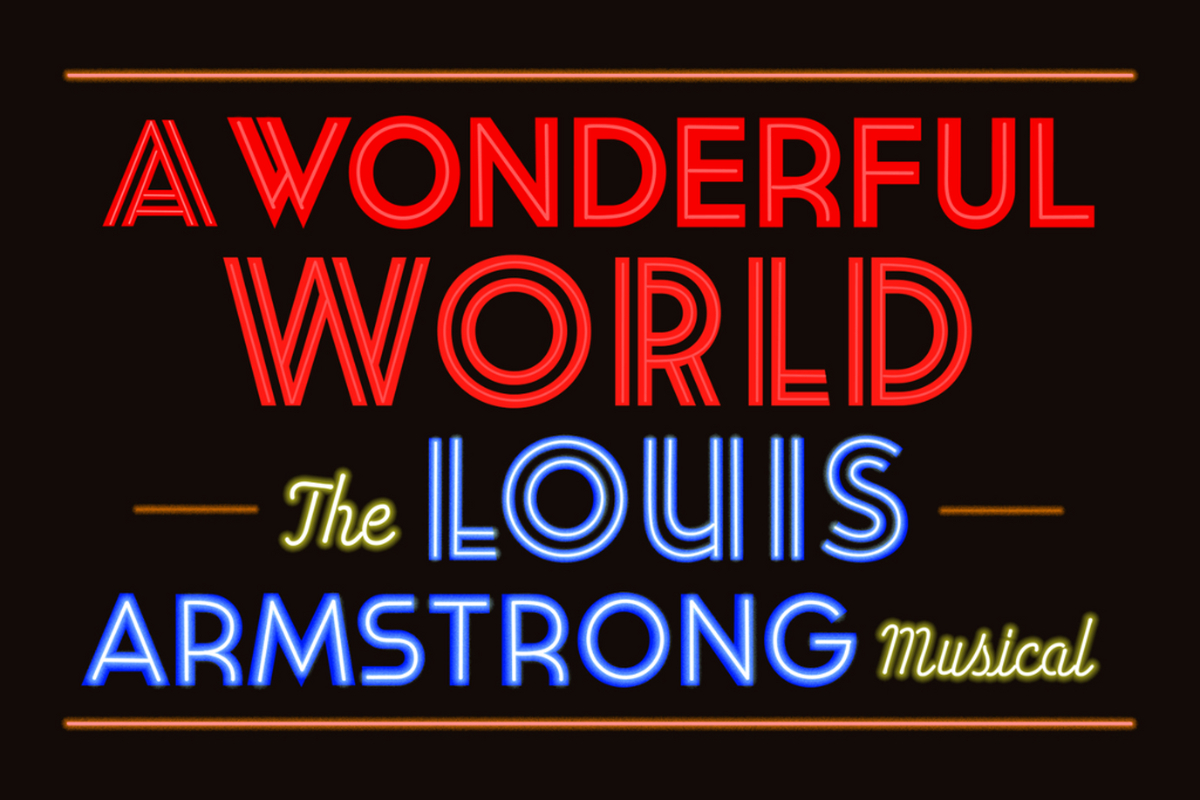Review Roundup: A WONDERFUL WORLD Opens On Broadway
See what the critics had to say about A Wonderful World.
Tony Award-winning actor James Monroe Iglehart steps into the shoes of the one and only Louis Armstrong in the new Broadway musical, A Wonderful World, now running on Broadway. See what critics thought about Broadway's newest biomusical by reading all the reviews from The New York Times, Variety & More...
![]() Jesse Green, The New York Times: Though a team led by Branford Marsalis and Daryl Waters has written hot arrangements and rich orchestrations for a nine-person band, including the great Alphonso Horne on lead trumpet, the program of 30 or so songs and samples cannot do deep justice to a man who spent 50 years at the converging middle of American music. Nor can a script that flips too quickly from one momentous change to another, as if it too were a jukebox. When a marriage descends from elation to desolation in a mere five minutes, no matter how sincerely Iglehart plays it, it’s as if there were no marriage at all.
Jesse Green, The New York Times: Though a team led by Branford Marsalis and Daryl Waters has written hot arrangements and rich orchestrations for a nine-person band, including the great Alphonso Horne on lead trumpet, the program of 30 or so songs and samples cannot do deep justice to a man who spent 50 years at the converging middle of American music. Nor can a script that flips too quickly from one momentous change to another, as if it too were a jukebox. When a marriage descends from elation to desolation in a mere five minutes, no matter how sincerely Iglehart plays it, it’s as if there were no marriage at all.
![]() Aramide Timubu, Variety: With a script by Aurin Squire for a show conceived by Christopher Renshaw and Andrew Delaplaine and co-directed by Renshaw, James Monroe Iglehart and Christina Sajous, “A Wonderful World: The Louis Armstrong Musical” is a majestic spectacle, paying homage to a towering figure and his distinctive legacy.
Aramide Timubu, Variety: With a script by Aurin Squire for a show conceived by Christopher Renshaw and Andrew Delaplaine and co-directed by Renshaw, James Monroe Iglehart and Christina Sajous, “A Wonderful World: The Louis Armstrong Musical” is a majestic spectacle, paying homage to a towering figure and his distinctive legacy.
![]() Jackson McHenry, Vulture: A lack of clear intention is, itself, perhaps a common bio-musical trope too. Even when shaded with a firmer angle, the overriding message behind most of these productions tends to be, simply, that a great musician was great. Squire, to his credit (it’s easy to blame a book writer for everything in a musical; the flaw here seems deeper), does push toward commentary, but what he comes out with are really four books for four different shows. I’d much rather have this thing cut down to size and watch a show just about Louis’s early days in Chicago and the financial predation of the jazz scene, or one just about him in Hollywood dealing with racist producers. Film biopics often fare better when they narrow their focus: Think of Pablo Larraín carving depths from slivers of a life in Jackie or Spencer. Or, take the model of something like Jelly’s Last Jam and go whole-hog with a concept like putting your lead on trial in the afterlife — that recent Encores! production does, unfortunately for A Wonderful World, hang in comparison to this jazz-icon musical. If we all know the melody these shows always follow, it’s long past time for some variations. But in this case, for an open run on Broadway, we get the whole shebang played as straight as possible. Don’t drop your sheet music. Improvisation is not so welcome here.
Jackson McHenry, Vulture: A lack of clear intention is, itself, perhaps a common bio-musical trope too. Even when shaded with a firmer angle, the overriding message behind most of these productions tends to be, simply, that a great musician was great. Squire, to his credit (it’s easy to blame a book writer for everything in a musical; the flaw here seems deeper), does push toward commentary, but what he comes out with are really four books for four different shows. I’d much rather have this thing cut down to size and watch a show just about Louis’s early days in Chicago and the financial predation of the jazz scene, or one just about him in Hollywood dealing with racist producers. Film biopics often fare better when they narrow their focus: Think of Pablo Larraín carving depths from slivers of a life in Jackie or Spencer. Or, take the model of something like Jelly’s Last Jam and go whole-hog with a concept like putting your lead on trial in the afterlife — that recent Encores! production does, unfortunately for A Wonderful World, hang in comparison to this jazz-icon musical. If we all know the melody these shows always follow, it’s long past time for some variations. But in this case, for an open run on Broadway, we get the whole shebang played as straight as possible. Don’t drop your sheet music. Improvisation is not so welcome here.
![]() Johnny Oleksinki, The New York Post: But these scenes that go beyond clunky biographic exposition are short-lived. Just when we’re starting to explore the depths of the man, another song begins. Some, like “Black and Blue,” contribute meaning and texture; others fill time in a show that already drags.
Johnny Oleksinki, The New York Post: But these scenes that go beyond clunky biographic exposition are short-lived. Just when we’re starting to explore the depths of the man, another song begins. Some, like “Black and Blue,” contribute meaning and texture; others fill time in a show that already drags.
![]() Tim Teeman, The Daily Beast: However, the orchestrations and arrangements (by Branford Marsalis) are rich and delicious; the choreography and musical staging by Rickey Tripp similarly slick. Perhaps this is enough for Armstrong devotees; a boisterous “Hello, Dolly!” which returned Armstrong to fame later in life and a restrainedly luminous “What a Wonderful World” both bring the evening to a resounding close. But have we gotten to know Armstrong as a musician, husband, cultural force, his politics, his passion for music, his strengths and frailties? Not fully—this is a soft biography, with a soft landing, leaving us feeling just as fuzzily-good as Armstrong’s lovely voice leaves us feeling on the stroke of midnight every new year.
Tim Teeman, The Daily Beast: However, the orchestrations and arrangements (by Branford Marsalis) are rich and delicious; the choreography and musical staging by Rickey Tripp similarly slick. Perhaps this is enough for Armstrong devotees; a boisterous “Hello, Dolly!” which returned Armstrong to fame later in life and a restrainedly luminous “What a Wonderful World” both bring the evening to a resounding close. But have we gotten to know Armstrong as a musician, husband, cultural force, his politics, his passion for music, his strengths and frailties? Not fully—this is a soft biography, with a soft landing, leaving us feeling just as fuzzily-good as Armstrong’s lovely voice leaves us feeling on the stroke of midnight every new year.
![]() Lane Williamson, The Stage: But oddly, the wattage of his wives dims the light on Armstrong himself. James Monroe Iglehart has delightful presence and nails Armstrong’s vocal quality, but he’s too often relegated to narrator, stepping out of the action to tell the audience how he felt, instead of showing us in the scene. Iglehart, Christina Sajous and Christopher Renshaw are all credited as directors of the project and, despite so many perspectives, the musical’s focus seems to be anywhere but on its central character.
Lane Williamson, The Stage: But oddly, the wattage of his wives dims the light on Armstrong himself. James Monroe Iglehart has delightful presence and nails Armstrong’s vocal quality, but he’s too often relegated to narrator, stepping out of the action to tell the audience how he felt, instead of showing us in the scene. Iglehart, Christina Sajous and Christopher Renshaw are all credited as directors of the project and, despite so many perspectives, the musical’s focus seems to be anywhere but on its central character.
![]() Robert Hofler, The Wrap: Only two of Armstrong’s wives in “A Wonderful World” share a dramatic scene: when Daisy charges Alpha and Louis of bigamy. Otherwise, one actor could play all four female roles, which might give some theatrical flair to a show that’s lacking in panache. Christopher Renshaw directs, and Iglehart and Christina Sajous are credited as co-directors. If there isn’t an adage about too many directors in the theater, there should be.
Robert Hofler, The Wrap: Only two of Armstrong’s wives in “A Wonderful World” share a dramatic scene: when Daisy charges Alpha and Louis of bigamy. Otherwise, one actor could play all four female roles, which might give some theatrical flair to a show that’s lacking in panache. Christopher Renshaw directs, and Iglehart and Christina Sajous are credited as co-directors. If there isn’t an adage about too many directors in the theater, there should be.
![]() Adam Feldman, Time Out New York: The outstanding James Monroe Iglehart, who plays Armstrong, has that smile down: a grin so wide and bright that, when the lights go out, you half expect it to linger behind like the Cheshire Cat’s. Iglehart has mastered Armstong’s mannerisms, too, and the churning gravel of Armstrong’s unmistakable voice (to an extent that makes you fear for his long-term vocal health); in Toni-Leslie James’s snazzy costumes and a series of first-class wigs, he summons Armstrong to life like the Genie he once played in Aladdin. But the performance goes beyond expert impersonation. Whether Armstrong is on stage or off, Iglehart infuses him with bluff, buoyant charm.
Adam Feldman, Time Out New York: The outstanding James Monroe Iglehart, who plays Armstrong, has that smile down: a grin so wide and bright that, when the lights go out, you half expect it to linger behind like the Cheshire Cat’s. Iglehart has mastered Armstong’s mannerisms, too, and the churning gravel of Armstrong’s unmistakable voice (to an extent that makes you fear for his long-term vocal health); in Toni-Leslie James’s snazzy costumes and a series of first-class wigs, he summons Armstrong to life like the Genie he once played in Aladdin. But the performance goes beyond expert impersonation. Whether Armstrong is on stage or off, Iglehart infuses him with bluff, buoyant charm.
![]() Greg Evans, Deadline: A Wonderful World: The Louis Armstrong Musical, starring a terrific James Monroe Iglehart (Aladdin, Hamilton) as the legendary Satchmo, opens on Broadway tonight at the Roundabout Theatre Company’s Studio 54, and if it doesn’t escape every pitfall of the jukebox musical, it certainly comes closer than most. Wonderful World is too expansive in chronological scope to delve too deeply into the crucial question of what made Armstrong such an incomparable figure in the history of American music, but with Iglehart and a fine supporting cast of excellent singer-actresses portraying Armstrong’s four wives – Dionne Figgins as Daisy Parker, Jennie Harney-Fleming as Lil Hardin, Kim Exum as Alpha Smith and Darlesia Cearcy as Lucille Wilson – the musical rarely gives us enough time to ponder what’s being left out. What we’re seeing on stage is too entertaining.
Greg Evans, Deadline: A Wonderful World: The Louis Armstrong Musical, starring a terrific James Monroe Iglehart (Aladdin, Hamilton) as the legendary Satchmo, opens on Broadway tonight at the Roundabout Theatre Company’s Studio 54, and if it doesn’t escape every pitfall of the jukebox musical, it certainly comes closer than most. Wonderful World is too expansive in chronological scope to delve too deeply into the crucial question of what made Armstrong such an incomparable figure in the history of American music, but with Iglehart and a fine supporting cast of excellent singer-actresses portraying Armstrong’s four wives – Dionne Figgins as Daisy Parker, Jennie Harney-Fleming as Lil Hardin, Kim Exum as Alpha Smith and Darlesia Cearcy as Lucille Wilson – the musical rarely gives us enough time to ponder what’s being left out. What we’re seeing on stage is too entertaining.
![]() Chris Jones, Chicago Tribune: To showcase and to dissect always are tricky, twin ambitions for any jukebox show, and I think the main problem with “Wonderful World” is that it worries too much about the latter, which gets in the way of fully delivering the former. The show, which organizes itself around Armstrong’s career-defining travels from New Orleans to Chicago to Hollywood to New York, has a whole lot of biographical information to deliver and it’s a very heavy load, especially in Act 2, which becomes a bit of a slog when audiences at such shows long have been conditioned mostly to expect a concert-style finale. In the Wikipedia age, information is not what audiences want so much as a point of view and, well, lots of songs and music. We still could do with less history and more time with Louis and his band.
Chris Jones, Chicago Tribune: To showcase and to dissect always are tricky, twin ambitions for any jukebox show, and I think the main problem with “Wonderful World” is that it worries too much about the latter, which gets in the way of fully delivering the former. The show, which organizes itself around Armstrong’s career-defining travels from New Orleans to Chicago to Hollywood to New York, has a whole lot of biographical information to deliver and it’s a very heavy load, especially in Act 2, which becomes a bit of a slog when audiences at such shows long have been conditioned mostly to expect a concert-style finale. In the Wikipedia age, information is not what audiences want so much as a point of view and, well, lots of songs and music. We still could do with less history and more time with Louis and his band.
![]() Roma Torre, New York Stage Review: A Wonderful World, the biographical jukebox musical about the legendary jazz trumpeter and singer Louis Armstrong, is named for Armstrong’s signature song “What A Wonderful World.” But a more apt title might be “The Four Wives of Louis Armstrong” because each of the four actors portraying Armstrong’s wives come close to stealing the show. It’s not that James Monroe Iglehart isn’t terrific in the lead role. He most certainly is…but each time the women step up to sing, they knock it out of the park. Iglehart’s role as the gravelly voiced, grinning jazz great is comparatively understated and so, impressive as he is, it’s the women who consistently dominate the spotlight every time they’re on. That’s not a criticism, just an observation, and it gives the show that much more talent to applaud. And talent is on overload in this enjoyable production.
Roma Torre, New York Stage Review: A Wonderful World, the biographical jukebox musical about the legendary jazz trumpeter and singer Louis Armstrong, is named for Armstrong’s signature song “What A Wonderful World.” But a more apt title might be “The Four Wives of Louis Armstrong” because each of the four actors portraying Armstrong’s wives come close to stealing the show. It’s not that James Monroe Iglehart isn’t terrific in the lead role. He most certainly is…but each time the women step up to sing, they knock it out of the park. Iglehart’s role as the gravelly voiced, grinning jazz great is comparatively understated and so, impressive as he is, it’s the women who consistently dominate the spotlight every time they’re on. That’s not a criticism, just an observation, and it gives the show that much more talent to applaud. And talent is on overload in this enjoyable production.
![]() David Finkle, New York Stage Review: Of course, Armstrong’s “Hello, Dolly!” is reprised, as a singalong, no less. It likely still holds the position as the last song from a Broadway music to reach number one on the Top 100. The title song, more properly known as “What a Wonderful World,” is kept for last as an Armstrong-in-heaven finale. It’s a bit too-too, but so what? The man’s music is reverenced throughout, and that’s what really matters.
David Finkle, New York Stage Review: Of course, Armstrong’s “Hello, Dolly!” is reprised, as a singalong, no less. It likely still holds the position as the last song from a Broadway music to reach number one on the Top 100. The title song, more properly known as “What a Wonderful World,” is kept for last as an Armstrong-in-heaven finale. It’s a bit too-too, but so what? The man’s music is reverenced throughout, and that’s what really matters.
![]() Kyle Turner, New York Stage Review: Armstrong repeatedly says jazz is about “the choices you make in between the notes.” Book writer Aurin Squire and conceivers Andrew Delaplaine and Christopher Renshaw toggle between conventional bio-musical choices and more challenging ones, keeping A Wonderful World lively and interesting. Shying away from an unblemished portrait of Armstrong and instead acknowledging his womanizing and self-involvement, A Wonderful World makes space for a version of Black artistry that confronts the complexities of artists as humans, and how the world around them may fail them.
Kyle Turner, New York Stage Review: Armstrong repeatedly says jazz is about “the choices you make in between the notes.” Book writer Aurin Squire and conceivers Andrew Delaplaine and Christopher Renshaw toggle between conventional bio-musical choices and more challenging ones, keeping A Wonderful World lively and interesting. Shying away from an unblemished portrait of Armstrong and instead acknowledging his womanizing and self-involvement, A Wonderful World makes space for a version of Black artistry that confronts the complexities of artists as humans, and how the world around them may fail them.
![]() Thom Geier, Culture Sauce: If there were ever tears behind that famous smile, Iglehart’s Armstrong is too reserved to share. (The actor is also weakest when he feigns playing the trumpet, the instrument that made Armstrong a star.) There’s no time for introspection when there’s another career highlight to hit, another song to cram into a show that boasts nearly 30 tunes in all. A Wonderful World doesn’t offer a very deep understanding of Louis Armstrong and what made him a legend, but it does over Satchmo, mo, mo.
Thom Geier, Culture Sauce: If there were ever tears behind that famous smile, Iglehart’s Armstrong is too reserved to share. (The actor is also weakest when he feigns playing the trumpet, the instrument that made Armstrong a star.) There’s no time for introspection when there’s another career highlight to hit, another song to cram into a show that boasts nearly 30 tunes in all. A Wonderful World doesn’t offer a very deep understanding of Louis Armstrong and what made him a legend, but it does over Satchmo, mo, mo.
![]() Brian Scott Lipton, Cititour: Others may see trees of green and red roses too as the show ends. What I see is that “A Wonderful World” is a story that might have been best served by one single vision.
Brian Scott Lipton, Cititour: Others may see trees of green and red roses too as the show ends. What I see is that “A Wonderful World” is a story that might have been best served by one single vision.
Average Rating: 58.7%
Reader Reviews



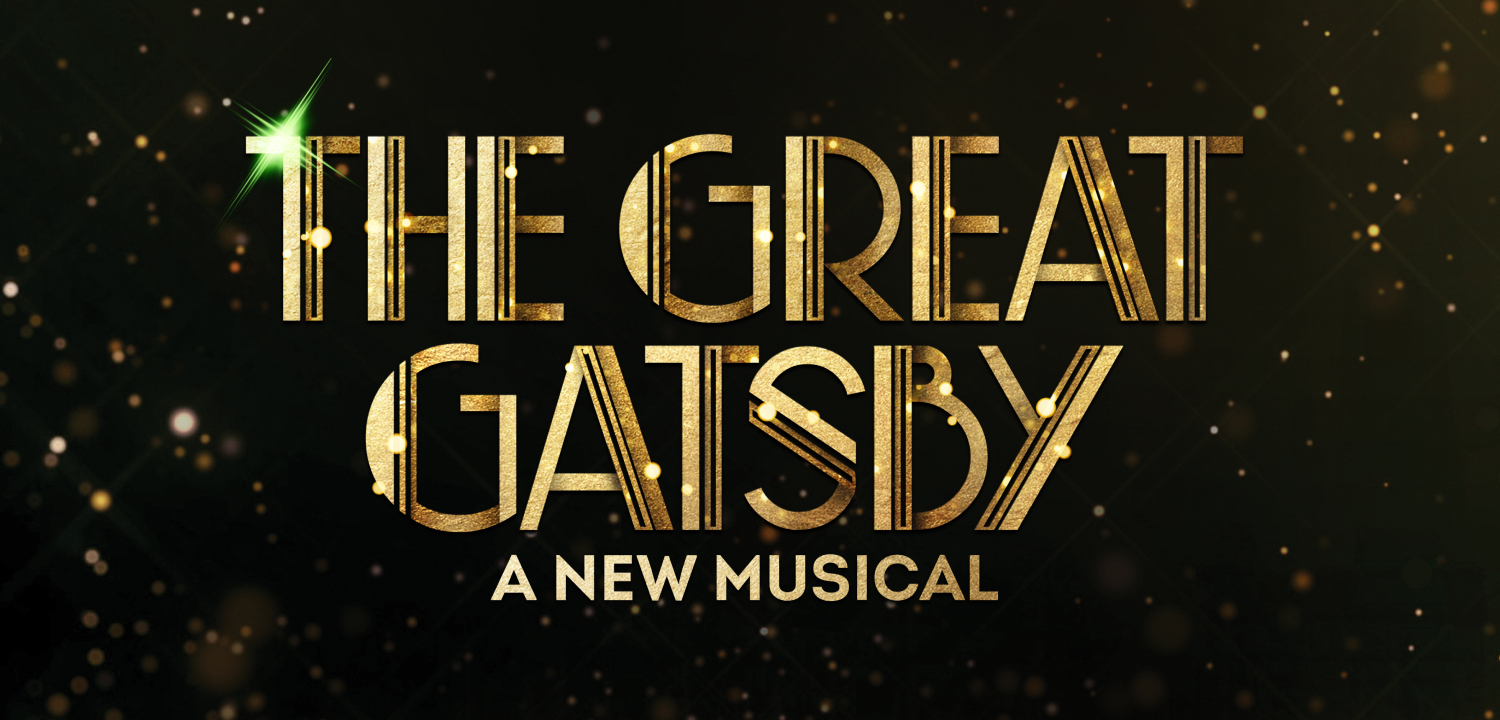
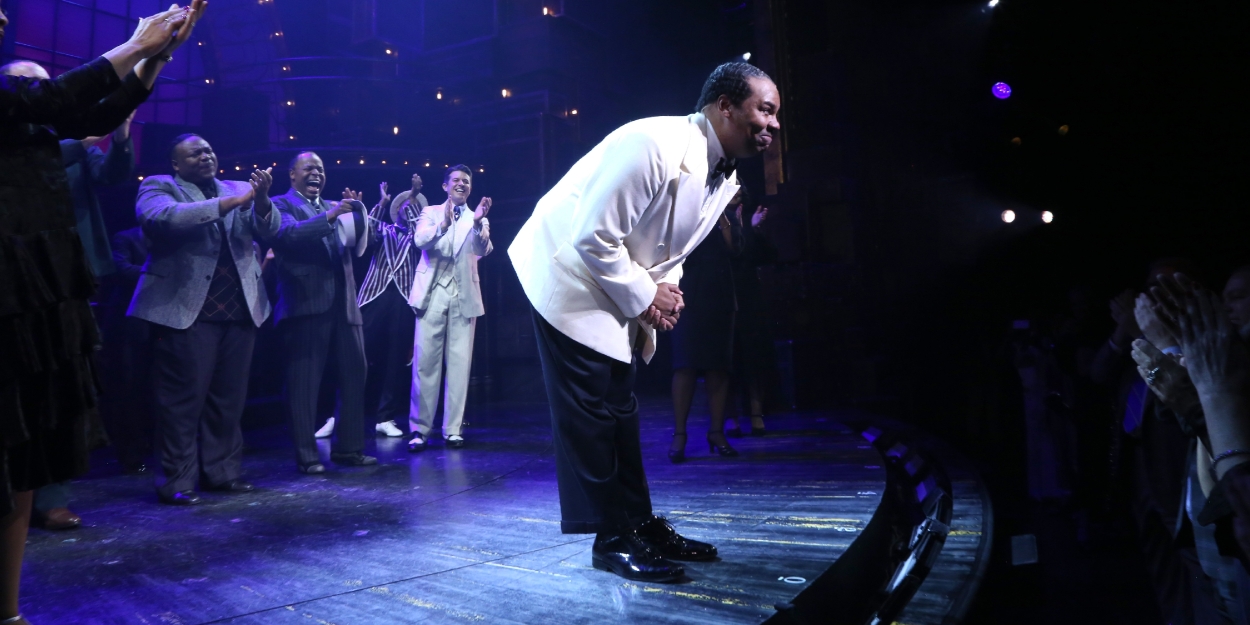
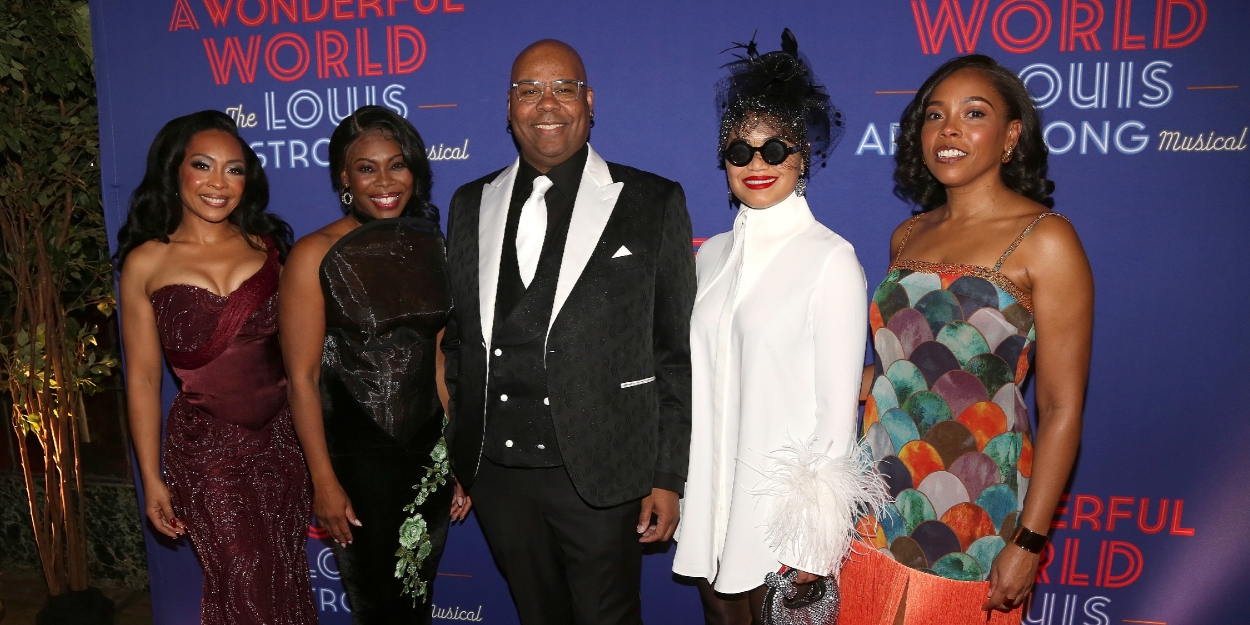
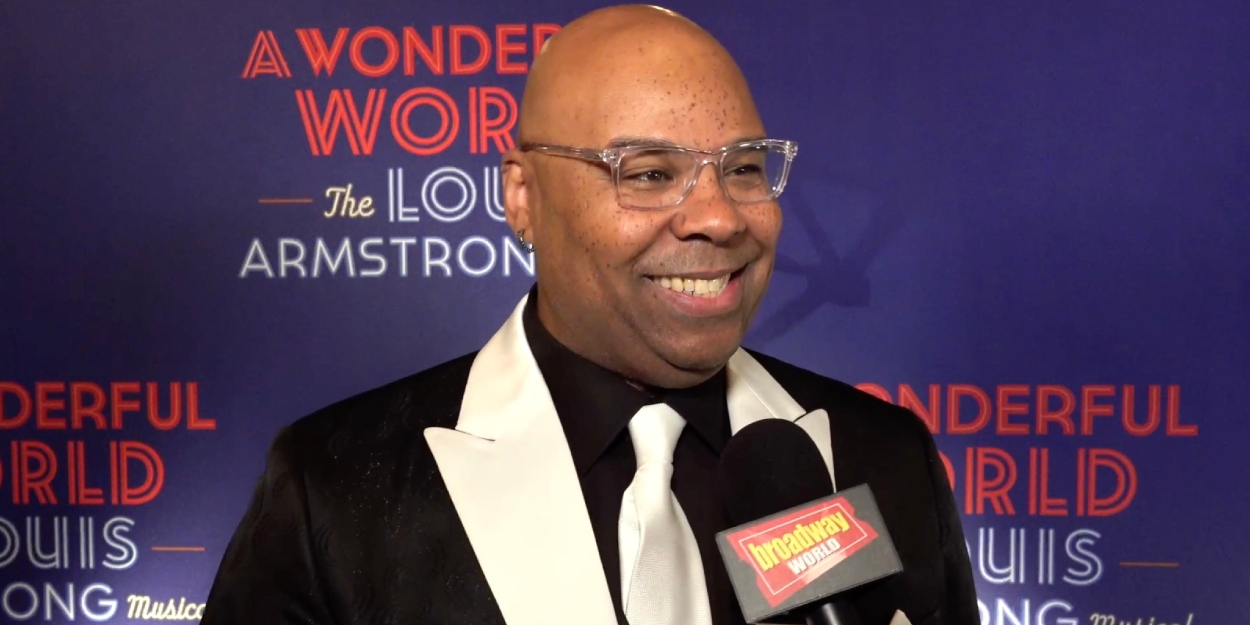
 A Wonderful World Broadway Hoodie
A Wonderful World Broadway Hoodie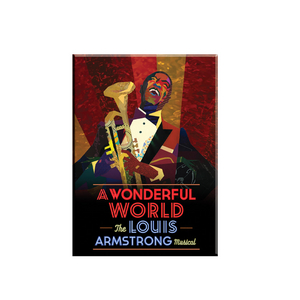 A Wonderful World Broadway Logo Magnet
A Wonderful World Broadway Logo Magnet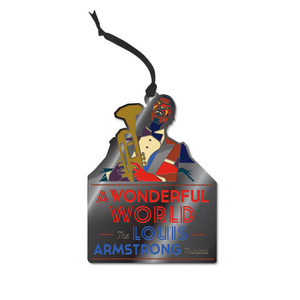 A Wonderful World Logo Ornament
A Wonderful World Logo Ornament A Wonderful World Music Note Tote
A Wonderful World Music Note Tote